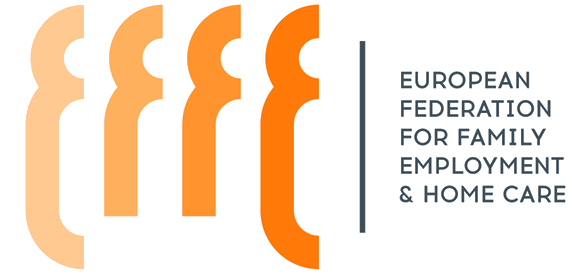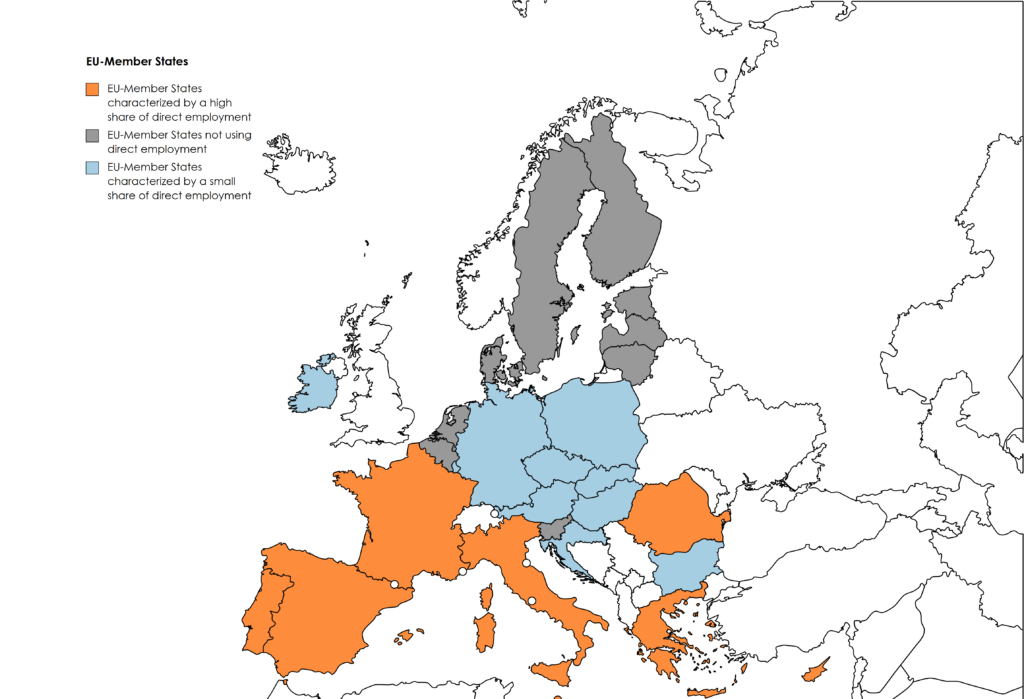
Definition
The European Federation for Family Employment and Home Care (EFFE) is one of the main actors involved in the personal and household services (PHS) sector at EU level. According to the EU definition, PHS refer to a large range of social and care related activities which contribute to the well-being of families and individuals at home, namely: child-care, long term care, housekeeping, educational support, home repairs, gardening.
EFFE specifically strives for the recognition and the development of the direct employment model (also called home employment), which is characterized by a contractual work relationship between two private individuals, without intermediary or any profit/commercial purpose. Based on mutual trust and cooperation between employers and workers, this declared model aims at guaranteeing social protection and rights to all stakeholders, in accordance with the cultural approaches of each Member State.
Home employment is fully in line with the European social market economy vision, since it provides a sustainable response to many demographic and societal challenges. It offers alternative solutions in terms of care and support for the elderly, which are more adapted to citizen’s needs. Besides, the outsourcing of familial and domestic responsibilities to a declared and paid worker allows a better reconciliation of work and private life. Home employment can thus provide realistic solutions, who are very often in charge of family responsibilities, and avoids their partial or total disengagement from the labour market. It can foster migrants’ integration, since it gathers low skills activities that can lift workers out of precarious employment.
Key figures
While its social dimension doesn’t need to be underlined, home employment has an important role in the European economy. With more than 9,5 million workers identified in the European Union, the PHS sector includes care activities (53%) and indirect care (47%) and is still characterized by a high share of undeclared work. Among the 6.5 million formal PHS workers, around 34% or 2.2 million are employed through the direct employment model, a ratio that rises to over 50% if we consider the 3.1 million informal PHS workers*. Based on the NACE classification system, these estimates give a very relative view of the share of direct employment in total EU employment. Despite its focus on “households as employers of domestic personnel”, NACE 97 does not include homecare workers performing more than one activity, and the same is true for their employers: if one of them performs more than 50% of another activity than this one, then he or she is not included in this sub-category.
The lack of policy framework for the sector, both at EU and national levels, strengthens the exclusion of these vulnerable workers. Stuck in the informal economy, they have no social rights, no social protection and benefit from a very limited access to the labour market. Some examples in the EU highlight that the better structuration of the home employment sector and the promotion of formal employment, through administrative simplification via declarative digital platforms, solvency of employers through tax credit schemes or tax deductions, offers effective and sustainable solutions. Furthermore, the professionalisation of workers significantly improves the quality of the services offered and strengthens the attractiveness of the sector.

Our objectives
To this end, the recognition of home employment is an essential step towards the completion of a social Europe that responds to the needs of its citizens. EFFE’s objectives are the following:
- Legal recognition from European policy makers and institutions of household services, family employment and home care as an economic sector, contributing to competitiveness and social cohesion.
- Bringing together all professional decision-makers and experts in this sector in Europe to combine their strengths and expertise for merging European households’ needs and for finding solutions respecting each cultural context.
- Professionalization of household service workers in Europe, increased attractiveness of these jobs, security and quality of the services provided and opening of a sector-based social dialogue at European level.
* Source : J.F. Lebrun. (2020). La complexité des estimations du nombre d’emplois générés par le travail domestique en Europe. Rapport réalisé à la demande du Bureau International du Travail.
Share